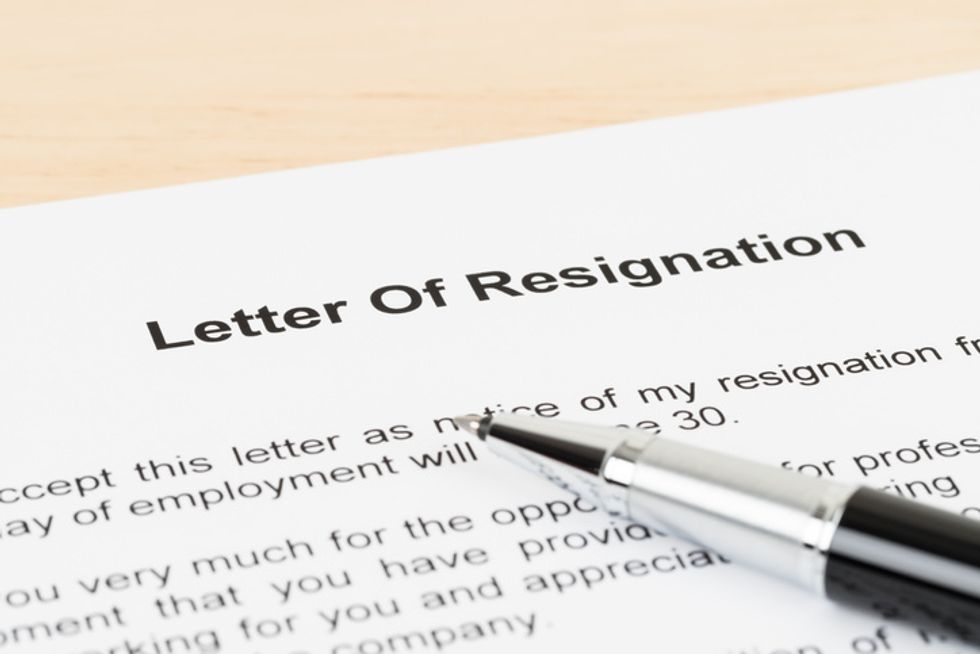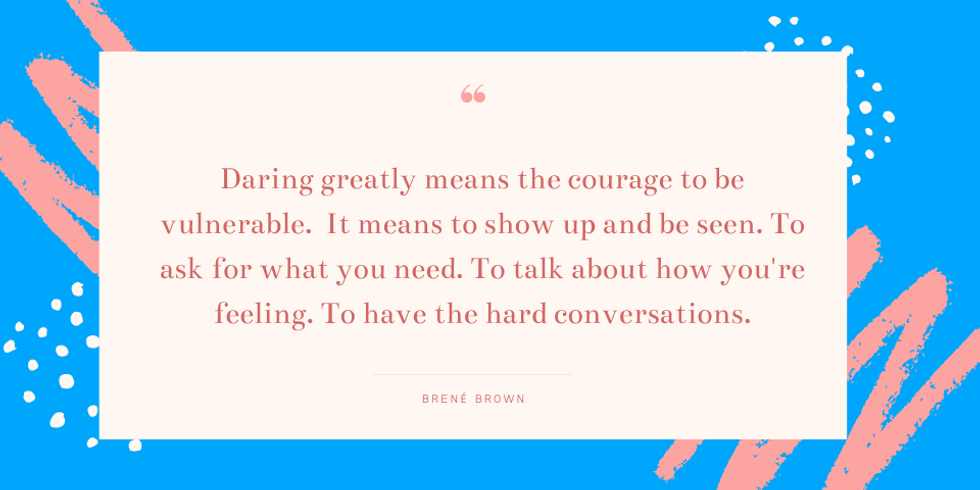After working remotely in education technology for 11 years, I decided it was time for a change. It's officially been three months since I quit my full-time job. The time since I quit has been filled with highs and lows: some days seem to affirm my decision, and others I feel myself second guessing the call I made.
On those days, when "what-ifs" take over, I find it's helpful to go back to the list of reasons for leaving I made at the beginning. Once you've done the work to figure out whether or not you should quit, the question becomes, how do you actually go about quitting?
Quitting a remote job can feel pretty different from quitting a traditional office job — there's rarely a goodbye party or after-office drinks. There's no physical space or cake to commemorate your time at the company. In some cases, this will feel like a relief...but regardless of your situation, quitting a job creates emotional upheaval, and you'll need time and space to process that change and loss.
Here are five things I've learned in the 3 months since quitting my remote job that will help you follow through with your decision to quit andcope with the loss of your virtual work world.
#1. Know that you are not alone.
Your decision to resign and make this life-altering, nerve-wracking decision takes a lot of bravery and courage. Also, you are far from alone. Resignations are a common part of the business world.
According to the Society for Human Resource Management and the Bureau of Labor Statistics, the rate of US workers quitting their jobs is on the rise. Thanks to a robust and healthy economy, it's a workers' market — there are fewer reasons than ever before to stay in a job that isn't fulfilling you. So if you're on the fence, know you're not the first or last person to quit their job — even a coveted remote job — and you deserve to do work you enjoy.
#2. Make a plan and get prepared.

After you've made the decision to quit, you need to decide when you'll give your notice. Best practice dictates two weeks. This will give your boss time to find a replacement and enough time for you to train them.
That said, if you have extenuating circumstances, there may be cases in which you would offer more or less notice. The key, no matter how much notice you plan to give, is to talk to your boss first. You may be dying to let your coworkers know that you're leaving, but hang tight until you've talked to your boss.
Then you need to actually talk to your boss. As a remote worker, you won't have the luxury of walking into your boss's office, but you can still schedule a one-on-one meeting (steer clear of email!). Schedule a phone or video conference call and give yourself the time you need for a thoughtful conversation — it's better to block an hour and use twenty minutes than the other way around.
Prepare what you're going to say in advance — one benefit you have as a remote worker is that you can jot down an agenda for yourself and leave the doc open on your computer while you chat with your boss so you don't forget any key points.
So, write down (or type out) what you want to say, including why you're deciding to leave. Your boss and others will ask. Tell them that you've decided to leave, why (in as much detail as feels right to you), and when.
Once you type it out, or write it out, you can then revise it from there. But you need to get the words out first. For me, I had three conversations to prepare for: one with my boss, another with close coworkers and the team that I managed, and a third with other coworkers at the company. I had a "script" for each type of conversation.
During the call with your boss, ask them to wait to share the news with others until you've had a chance to speak with your close coworkers or the team you manage.
Then be sure to talk about how this news will be communicated to the greater company as well. There may be protocols for this. If not, ask your boss to send a mass email with the news. Then it won't come as a surprise to others when you don't show up to work one day. Or, you could send a "good-bye" email yourself. This ensures that you control the narrative and leave on a high note.
Lastly, you'll need to provide the company and specifically the Human Resources department with a resignation letter. This is an official physical letter or an email stating your intention to leave your job. It can be a physical letter or an email with a document attached. There are plenty of sample letters out there to follow online. But the basic elements to include are: your last day, your current title, and a clear statement that you are resigning.
#3. Hope for the best, prepare for the worst.
We need to visualize and think about the worst that could happen. This helps to build up courage, even amidst the anxiety of resigning from your job.
Visualize the absolute worst thing happening (even if it's far-fetched). For me, I visualized the conversation with my boss going something like this, "I can't believe you are leaving the opportunity we have right now as a company. We put you in charge of this new product and in return you betrayed us all."
Yes, this sounds a bit melodramatic, but it was the worst-case scenario in my mind. I knew in reality it wouldn't go anything like this. I knew my boss, team, and coworkers would be supportive and they absolutely were when I had those conversations. I heard multiple times how much I contributed to the company, and how much I would be missed. That's a great feeling upon leaving the company and making a change. It gave me a much-needed boost of encouragement!
#4. Stay focused on your "why."
 Giphy
GiphyThroughout the process, it's easy to doubt yourself and drown in fear. For me, my biggest fear brought to mind the Joni Mitchell song "Big Yellow Taxi." The famous line in the song goes, "you don't know what you've got until it's gone." My fear was that the day after I quit my job, I'd be wallowing in sorrow wanting it back.
In reality, it didn't go this way because I focused on "owning my why," as coined by the Minnesota Vikings mental coach Dr. Cindra Kamphoff. She recommends reminding yourself daily of your purpose and motivation for what you do—your "why." So each day, I reminded myself that I was leaving due to burnout and that I needed a change. I owned this like a meditation mantra.
#5. Seek guidance from experts along the way.

Just like the tip from Dr. Cindra Kamphoff above, I found quotes, books, and meditations that helped me along the way. Dr. Brene Brown, the well-known researcher and motivational speaker/author, has been especially helpful for me as well. She stresses the importance of vulnerability and courage. These are key to a well-rounded, fulfilling life.
Lastly, know that leaving your remote job can feel "anti-climatic" — there won't be someone physically there to say "goodbye" on your last day or a farewell dinner party with coworkers. But that's okay. Treat yourself with kindness (like a self-care day) and stay focused on owning your why.
----
Ready to start learning about other remote jobs? Check out these best work-from-home jobs on our blog.



